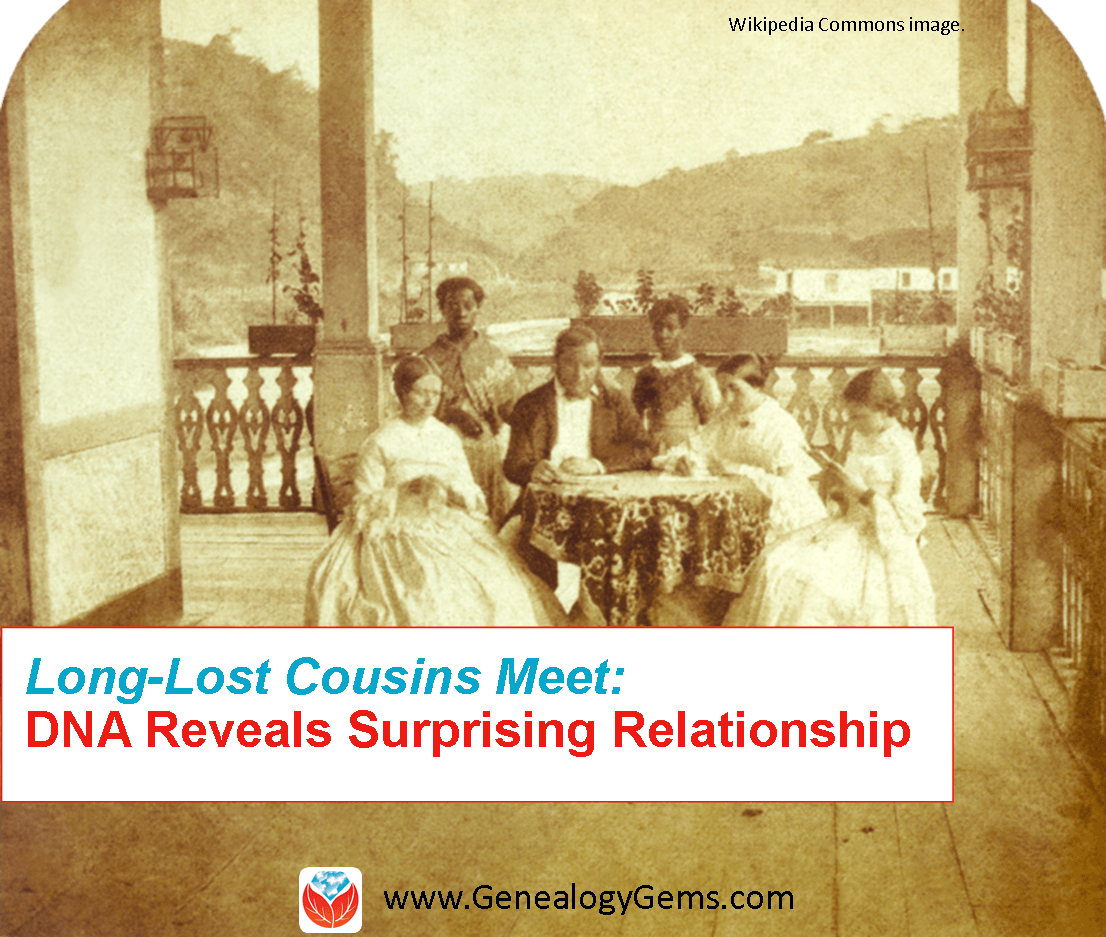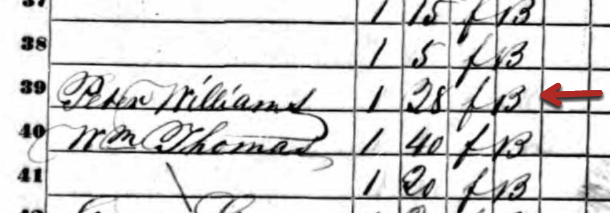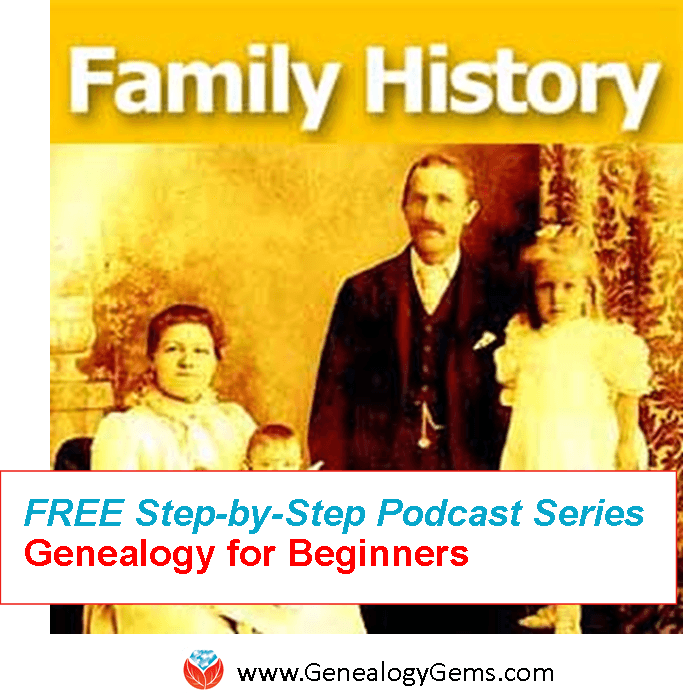Texas State Genealogical Society Conference 2016 Welcomes Lisa Louise Cooke
Texas State Genealogical Society Conference 2016 is coming up next month and there is still time to register! Learn from some of the elite genealogists in the field, including our own Lisa Louise Cooke.

Pre-Conference Research Day
The Texas State Genealogical Society (TSGS) Conference begins on the 27th of October with the Pre-Conference Research Day. This free research day is being hosted by the Dallas Public Library and the Dallas Genealogical Society.
Held at the Dallas Public Library from 10 am to 8 pm, this research day will include:
- Staff-led tours available of the Genealogy Division (8th floor), the Dallas History & Archives (7th floor), and the Government Documents Division (6th floor);
- Volunteers on hand to assist people with research and Texas Heritage Certificate applications;
- and light refreshments to be served.
The Texas State Genealogical Society Conference 2016
This year’s conference venue will be the beautiful Crowne Plaza in downtown Dallas. You can really get excited for this three-day conference packed with 70 sessions and 35 speakers. The TSGS hopes to provide something for every genealogist. The conference will also include special afternoon breakout sessions and five in-depth workshops among the noted activities. An exhibit hall packed with the latest and greatest from genealogy companies and researchers will be enticing and Genealogy Gems will be there, so don’t forget to stop by and see us!
Lisa’s Sessions at the Conference
Lisa will be presenting a class titled Beginning Evernote for Genealogists on Friday. You will gain a firm grasp of what Evernote can do and how to get started. Best of all, learn how easy it is to put all your genealogical research notes (text, audio, images, etc.) into Evernote and to have it at your fingertips with super fast note retrieval.
On Sunday, Lisa will present Using Google Earth for Genealogy. In this popular class, Lisa (our Google Guru!) will teach you how to unlock the mysteries in your research from unidentified photographs, to how an ancestral location looked a hundred years ago. You will be amazed to discover how Google Earth is one of the best free genealogical tools available today.
Register for the Texas State Genealogical Society Conference 2016
If you haven’t already done so, there is still time to register. Early bird registration is available through October the 7th. See all the price options and register by clicking here: http://www.txsgs.org/conference/registration/
We hope to see many of you there. Don’t forget to stop by and see us in the exhibit hall to share with us what you have learned!
To see where Lisa will be teaching next, see our seminar page here.
More Gems for E vernote
vernote
Get started using Evernote even before Lisa’s class on Oct. 28, 2016. Our quick reference guides make it easy!
Evernote for Windows for Genealogists Guide
Evernote for Mac for Genealogists Guide
“We’re Cousins?!” DNA for Genealogy Reveals Surprising Relationship
Two cousins recently chatted after learning that they share DNA. The first asked whether the second is white. “No,” she answered. The response: “Are you sure?”
In our modern society, families are defined in a myriad of different ways. Using DNA for genealogy is certainly contributing to these

A family and its female slave house servants in Brazil, c.1860. Wikimedia Commons image. Click to view full source citation.
changing definitions, as families find themselves genetically linked across social and cultural boundaries to kin they never expected.
Such is the case for a Bartow, Florida resident who submitted a DNA test out of curiosity and found more than she expected. Through a combination of DNA testing and social media, Mary McPherson, who is white, met one of her cousins, Dolores Washington-Fleming, who is black.

Peter Williams’ entry in 1850 U.S. Census Slave Schedule, St Bartholomews Parish, Colleton, South Carolina. Image from Ancestry.com.
According to an article on The Ledger, the two women share a great-great-grandfather, Peter Edward Williams, who was born in South Carolina two centuries ago. Peter was a slaveholder. The 1850 census slave schedule shows that he held a female slave who was a few years younger than she was. Dolores believes that’s her grandmother’s grandmother.
The two finally met this past May for the first time and enjoyed this new definition of family. I think what I like most is what Dolores’ son said about the situation: “My mom and I are fascinated by history, and this is history. We represent what the times were like back then.” It still boggles my mind just a little that we are able to use the DNA of living people today to resurrect the past, and bring depth and meaning to the present, and possibly even prepare us for the future.
I find myself in a similar situation to Dolores and Mary. My mom was adopted, and even though we have had DNA testing completed for several years, we didn’t have any close matches, and honestly, we weren’t looking. Though she did have a passing interest in her health history, my mom did not feel the need to seek out her biological family. But then over the last few months various pieces of her puzzle have started to fall into place. This is much because of a key DNA match that popped up in March.
With that one match and subsequent correspondence, our interest in my mom’s biological family has skyrocketed. Why? I think it is because our DNA match, sisters from Texas, have shown us genuine kindness and interest. They have truly shown us what it means to be family. Even though we are unexpected, even though we aren’t sure yet how exactly we are connected, they have embraced us without reservation without hesitation.
To me, this is what family is. They accept you in whatever condition you come in and do their best to make you feel like you belong. Now, that kind of welcome isn’t felt by everyone who meets their genetic cousins, and people should carefully consider whether they’re ready for unforeseen results or unanticipated reactions from DNA matches before they get started.
But what about you? If you’ve started down the genetics path, how has DNA testing expanded or strengthened your definition of family?
Learn more about DNA testing for genealogy–how to get started or how to make sense of testing you’ve already had–with my quick guides available at the Genealogy Gems store, and then contact me at YourDNAGuide.com to arrange your own personal DNA consultation.
Resources for DNA for Genealogy
DNA Quick Guides for Genealogy (Bundle them for savings!): Getting Started, Autosomal DNA, Y Chromosome DNA, Mitochondrial DNA, Understanding Ancestry,  Understanding Family Tree DNA
Understanding Family Tree DNA
New AncestryDNA Common Matches Tool: Love It!
Confused by Your AncestryDNA Matches?
 Thank you for sharing this article with others by email or on your favorite social media site. You’re a gem!
Thank you for sharing this article with others by email or on your favorite social media site. You’re a gem!
Genealogy Blogging Tips: Dictation App and More
Are you ready to start a genealogy blog (or improve one you already write)? Here’s a quick Q&A for you, prompted by questions by Genealogy Gems  Premium member Kevin:
Premium member Kevin:
Q: “I am ready to start writing a blog but my typing is slow. Is there a dictation app (iOS) or software (Windows) that I could use to dictate my first drafts of my blog posts?
A: If you go to www.genealogygems.com and scroll down and enter “Dragon software” into the Amazon box and click “Go” it will pull up a great dictation program that might be just what you are looking for. (Using our Amazon box supports the free podcast – thank you!)
Q: Which blog site do you use and why did you select it?
A: I use Word Press for my website and blog. They have a free version at wordpress.com. Google also has Blogger which is free. I have a free series of videos on the Genealogy Gems YouTube channel about how to set it up. They are a few years old, but will give you the basic idea.
Q: Do you compose your blog posts directly on your site or do you type them in Word or some other word processing program then cut and paste them into your blog?
A: It’s best to compose them directly into a new post on Word Press or Blogger. Cutting and pasting out of Word will likely carry over unwanted formatting which can cause headaches.

Listen to the Family History: Genealogy Made Easy podcast by Lisa Louise Cooke. It’s a great series for learning the research ropes and well as refreshing your skills.
Ready to get inspired and tutored on genealogy blogging? Check out my FREE podcast series on how to start a genealogy blog. Click here to reach my Family History Made Easy podcast landing page, then start with episode 38 and continue through episode 42. You’ll learn step-by-step how-tos and you’ll be introduced to some inspiring blogs that WORK. We often hear about success stories from listeners who started a blog after hearing these episodes. (We’d love to hear YOUR success story, too!)
